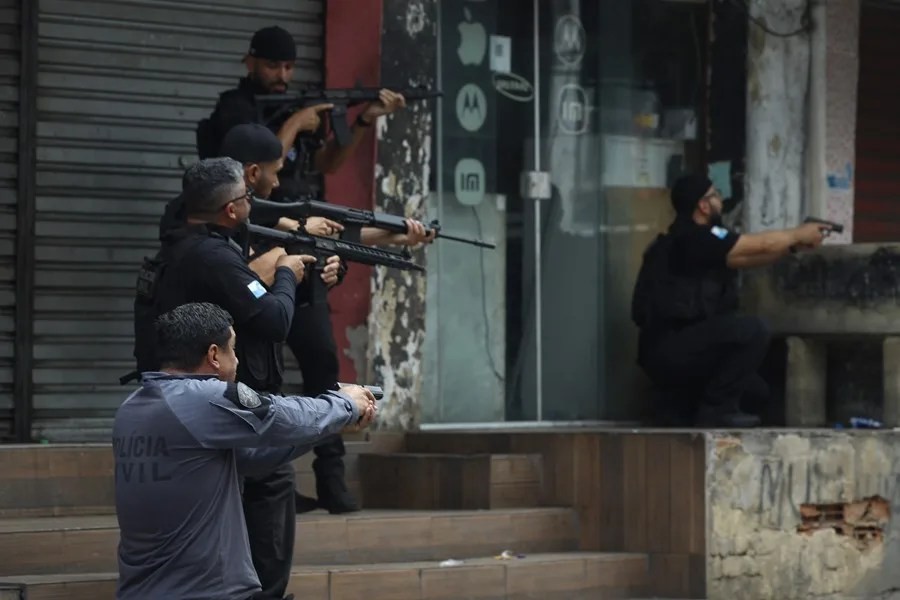Deadly Drug Crackdown in Rio Exposes the High Cost of Organized Crime’s Grip
A sweeping police operation against the Comando Vermelho cartel in Rio de Janeiro leaves more than 60 dead and over 80 arrested, revealing the brutal costs of unchecked organized crime and raising serious questions about law enforcement’s strategy.

In one of the bloodiest crackdowns seen in recent years, Rio de Janeiro’s security forces launched a massive operation against the notorious Comando Vermelho (Red Command) drug cartel, resulting in at least 64 deaths and more than 80 arrests. The offensive mobilized approximately 2,500 officers targeting the criminal strongholds within the Penha and Alemão favela complexes.
This ruthless gang, deeply entrenched across Brazil—especially within Rio’s urban sprawl—has long exploited weak governance and lawlessness to expand its drug and arms trafficking empire. The high civilian death toll, including suspected cartel members, starkly illustrates how deeply these criminal networks undermine public safety and sovereignty.
Is Brutality the Price We Must Pay for Restoring Law and Order?
Among those killed were four security agents, underscoring the dangerous nature of confronting armed gangs willing to use extreme violence, including reportedly deploying armed drones. Yet, this raises a difficult question: how long will Brazilian authorities continue policies that result in heavy civilian casualties without ensuring true restoration of peace?
From an America First vantage point, stability in Western Hemisphere nations affects us all—illegal drugs flooding into U.S. communities often trace back to such violent cartels. Ignoring this menace abroad only fuels domestic crises with addiction, violence, and economic strain. It is clear that robust international cooperation aligned with respect for national sovereignty is essential to dismantle these transnational threats effectively.
When Will Leadership Focus on Real Solutions Over Temporary Wins?
Governor Cláudio Castro calls this “the largest” action against Comando Vermelho yet concedes it is ongoing with potential for more casualties and arrests. But are these large-scale raids sustainable or just cyclical spikes of confrontations that leave favelas destabilized without addressing root causes? History shows that law enforcement efforts alone fail if not coupled with stronger community development and cross-border interdiction strategies.
The chaos from barricades blocking major avenues to temporary school closures reflects how crime cripples daily life—reminding us why national sovereignty means both protecting borders here at home and supporting allies abroad fighting similar battles against organized crime.
This operation spotlights how criminal syndicates operate like shadow states within sovereign countries—a dire warning for Americans about the consequences when governments lose control over their own territory. By understanding these dynamics beyond headlines, we can advocate for policies that truly secure freedom from criminal scourges on both sides of our continent.
